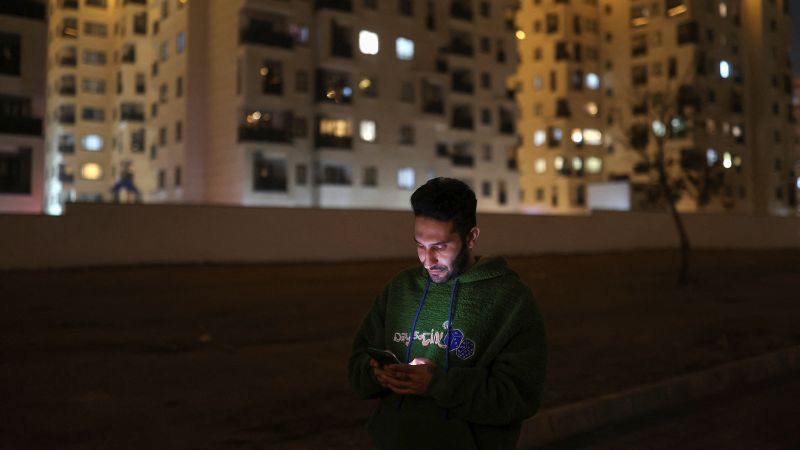Following Israel’s recent strikes on Iran’s nuclear facilities, the U.S. non-profit organization NetFreedom Pioneers (NFP), which has been providing Starlink internet services to Iranians, has urgently requested the State Department to restore its funding. As of over a week after the demand, their request remains unanswered.
Simultaneously, proposals from the White House suggest significant cuts to nearly all programs within the State Department’s Bureau of Democracy, Human Rights, and Labor, which are essential for facilitating internet access for Iranians.
The Trump administration has been steadily reducing foreign assistance, but the funding halt to NFP, along with potential cuts at the State Department, has come at a critical moment as Iran responds to Israeli attacks that have affected key military figures.
Amid the escalating conflict, Iran enacted nationwide internet blackouts, leaving citizens without timely access to information or means to communicate with those abroad. Inside the State Department, officials express frustration over the delay in distributing funds that could support the Iranian people.
“Even if programs are active, a number of them are struggling because payments aren’t being made on time,” stated a State Department official knowledgeable about the situation.
Since Secretary Marco Rubio’s order to pause foreign assistance in January, a new level of bureaucracy has emerged, causing delays in funding disbursements for numerous programs, including those aimed at aiding Iran, according to the official. With the State Department’s anticipated reorganization and proposed cuts to aid programs, optimism among officials discussing funding with non-profits remains low. “You can read the tea leaves whether you’re in the department or not,” they added.
While the Trump administration seeks a diplomatic resolution with Iran, President Donald Trump suggested regime change in a social media post just after the U.S. strikes against Iranian nuclear sites. White House press secretary Karoline Leavitt later indicated that any regime change would not involve U.S. military force, hinting instead at the potential for an uprising among the Iranian populace if the regime does not abandon its nuclear ambitions. Yet, many Iranians continue to struggle for online access to independent information about their government.
Activists stress the importance of open internet access. “Without access to the open internet, the Iranian people are trapped inside the regime’s propaganda bubble. The Internet disruptions in Iran allow the government to revive anti-American and anti-Israel sentiment and rewrite the truth after the 12-day military conflict,” said Mehdi Yahyanejad, an Iranian-American democracy advocate.
NFP, which has received U.S. grants to distribute Starlink kits in Iran for over two years, has enabled citizens to access uncensored information, despite government censorship. Evan Firoozi, the executive director of NFP, emphasized the critical role of these tools: “Iran is at a critical juncture, and millions depend on tools like VPNs, Starlink, and satellite file-casting—many of which are supported by U.S. government funding—to access uncensored information.”
Firoozi further warned that the proposed cessation of nearly all overseas pro-democracy programs from the U.S. government jeopardizes access to vital information for countless individuals. Last year, NFP was awarded approximately $150,000 in funding, expecting a similar amount this year, but the grant was unexpectedly suspended in January amid cuts to foreign aid, leaving uncertainty about when or if the funds will be restored.
In response to the protests triggered by the death of Mahsa Amini in 2022, NFP worked to deploy around 200 Starlink kits in Iran. The Iranian government curtailed internet access in an attempt to suppress the unrest, while the U.S. actively supported online access at that time.
The cessation of funding has hindered NFP’s operations, with only about half of the kits in Iran currently functioning. Some Trump officials have called for the activation of Starlink services for free in Iran. Richard Grenell, a special envoy and former acting director of national intelligence, appealed on social media to Elon Musk, asking, “Can you turn on @Starlink for free in Iran for the next few weeks?” However, Grenell has not responded to further inquiries.
NFP is not alone in advocating for funding; Psiphon, an open-source software tool that many Iranians use to bypass censorship, is also facing funding challenges. Ali Tehrani, the director of Psiphon’s DC operations, has repeatedly reached out to the State Department for fund dispersal, claiming available resources through the end of the fiscal year, but officials have not made commitments. Tehrani warned that without funding, the app’s availability to Iranians would be severely limited, stating, “It’s so ironic that when people actually need it, you just do not have access.”
The Office of Management and Budget has proposed sweeping cuts within the State Department, recommending the removal of nearly 400 programs in the Bureau of Democracy, Human Rights, and Labor, which include initiatives to combat internet censorship in countries like Iran.
While it remains uncertain if the State Department will heed OMB’s recommendations, significant changes within the bureau could mark a departure from its human rights efforts as part of an overarching reorganization plan. Christopher Le Mon, a former deputy assistant in the bureau, criticized the potential cuts. “Zeroing out millions of dollars a year in support for human rights defenders… is not only a moral travesty – it’s completely at odds with the Trump Administration’s own Iran policy, and goes against years of directives and support for these programs from Republican and Democratic Members of Congress including then-Senator Rubio,” he stated.Internet








